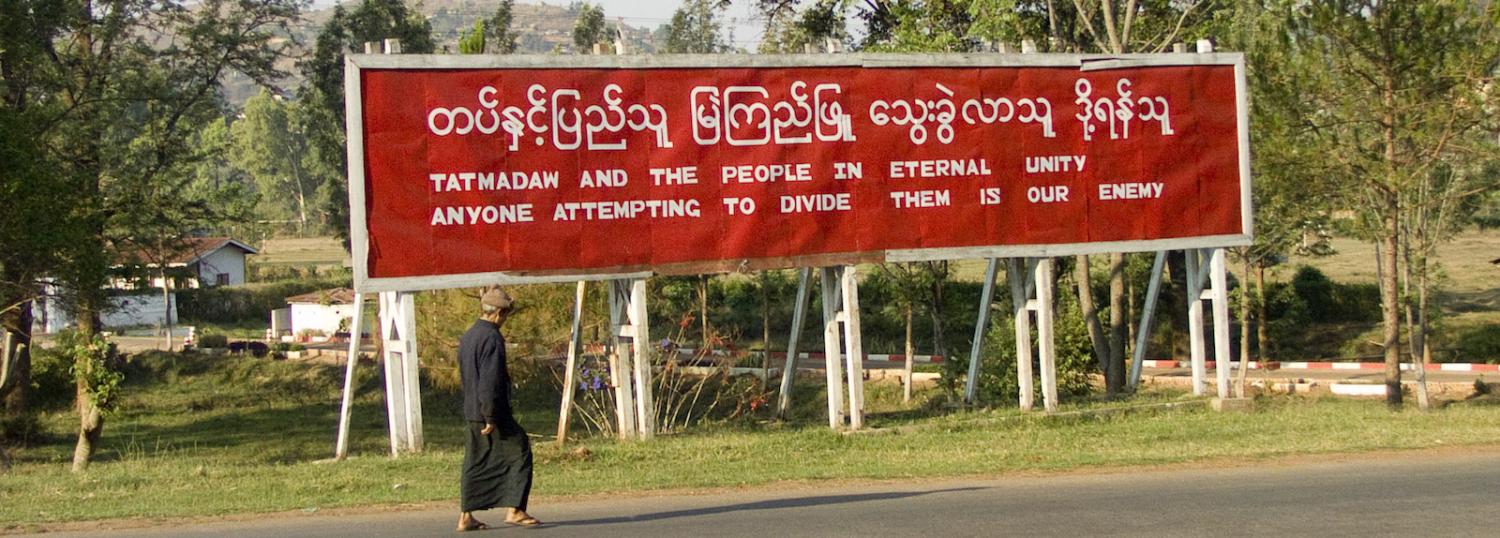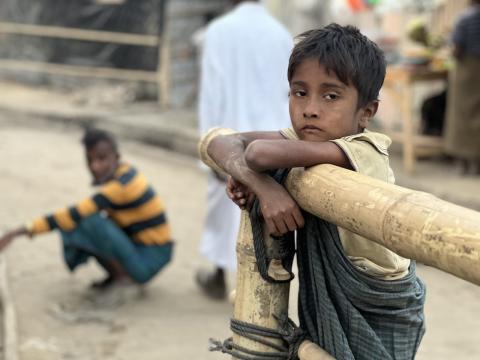Some have called Myanmar a struggling beauty. Without a doubt, the country is beautiful, home to a number of unique heritage sites. Yet it is also a country that claims it has been widely misunderstood.
The basis to sustaining democratisation of the country is dependent on appeasing the military.
The repeated mention in literature of the two naming alternatives, Myanmar or Burma, only underscores the need for a greater international understanding of the country’s situation. Ultimately, the lack of engagement with the international community, coupled with Myanmar’s stubborn stance in seeking to hide the facts of the Rohingya crisis, has left an impression of a “hermit country”.
Myanmar’s State Counsellor Aung San Suu Kyi claimed in a speech that more than half of Muslim villages in Rakhine State are “intact”, and urged foreign media to speak to the remaining Muslims. Likewise, Myanmar’s President Win Myint proclaimed in a recent speech that 2018 has been an auspicious year for the Rakhine State. Such statements have been ridiculed by the international media.
Yet the general public was reluctant to engage in conversation on the Rohingya issue during my recent visit to the country. A brief encounter with a representative working in a non-governmental organisation facilitating the repatriation of Karen refugees yielded no results either. This reflects the sensitiveness and level of tolerance for freedom of speech in the country.
But it is even more dramatically illustrated by the fate of the two imprisoned Reuters journalists, Wa Lone and Kyaw Soe Oo.
Despite being the leader of the government, Suu Kyi has no control over the Tatmadaw (Burmese Armed Forces) because the Myanmar government is based on military supremacy. According to the country’s constitution, the military commander-in-chief does not have to report to the state counsellor.
Suu Kyi’s changed attitude towards the Tatmadaw was evident immediately after her landslide election victory in November 2015, where she stated that there would be no investigations into the past actions of the outgoing military regime or the armed forces. She urged elected National League for Democracy (NLD) candidates to:
Forgive those who wronged us … Whatever mistake they have made in the past, we need to give them the chance to change, instead of seeking revenge.
Her government is bound to the military.
Paradoxically, the basis to sustaining democratisation of the country is not to reduce the influence of the Tatmadaw. Instead, it will be successful only by appeasing the military and is dependent on Suu Kyi and the NLD’s ability to compromise with military leaders.
If Suu Kyi publicly condemns the Tatmadaw operations that have driven the Rohingya to Bangladesh, she will be condemning both the Tatmadaw and the voters who elected her party in 2015.
As such, her leadership position will likely become unstable. Suu Kyi has been constantly reminded of the vulnerability of her own position, and, like any politician, she is acutely sensitive to threats to power.
Recent by-election results revealed Suu Kyi’s declining popularity amongst the Burmese. The mistreatment of the Rohingya is only one problem in the civil war that has raged in Myanmar since its independence, where the Tatmadaw has been seeking to suppress around 20 armed ethnic minority groups living in the mountainous borderlands of neighbouring India, China, and Thailand. Suu Kyi’s top priority since assuming leadership has been achieving peace with these minorities. Unfortunately, she seems to be a long way from achieving a nationwide ceasefire and the Rohingya crisis makes this goal even more difficult.
Suu Kyi has failed in her promises to the international community of a peaceful and democratic Myanmar.
Instead, there has been a drastic escalation in ethnic conflicts that have simmered and sporadically exploded. The Rohingya crisis brings in focus the fact that persecution of Muslims in Myanmar has been ongoing since independence. Despite promises to increase transparency over her government’s handling of the Rohingya crisis while pitching for foreign investment in Myanmar, the UN refugee agency was not consulted in the Rohingya repatriation deal between Myanmar and Bangladesh.
It is possible, as I’ve argued elsewhere, for ASEAN, Myanmar, China, Bangladesh, and India to facilitate and address the root of the problem, ensuring that the repatriation of Rohingya refugees is done properly. The hallmark of this approach is the direct engagement with those responsible for human rights violations as well as broader groups in society, to address problems and improve the practical framework for human rights protection. This also means forging an agreement between the Tatmadaw and radical groups, such as the Arakan Rohingya Salvation Army.
This approach will be attractive to Myanmar for two reasons. It directly addresses the structural challenges of promoting human rights within Myanmar. And while carrying the benefit of facilitating better working relations with China and India, seeing ASEAN involved help overcome the deep distrust of Myanmar officials for international organisations and rights agencies.

